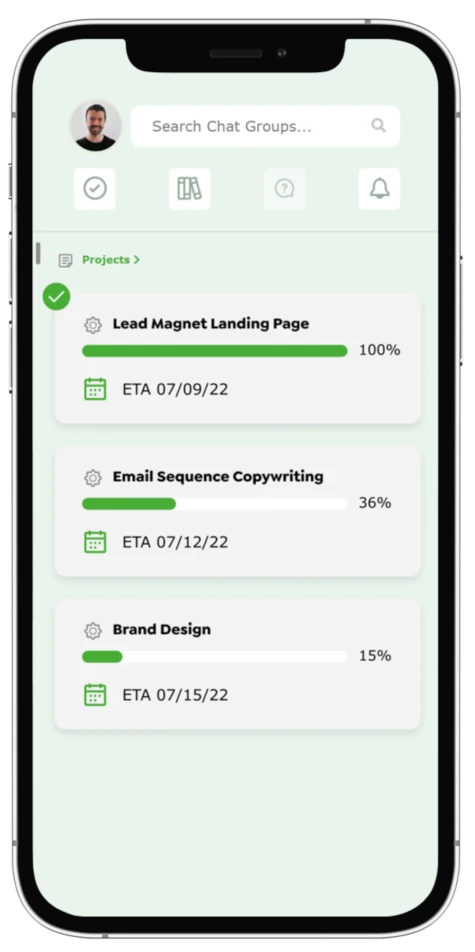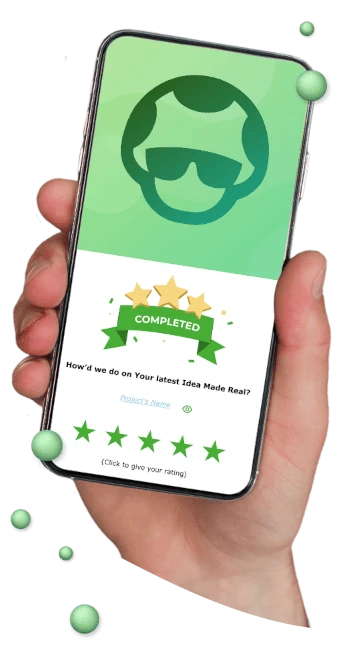What is Social Proof? (And Examples Of How It Can Grow Your Sales Up To 400%)
Think of your favorite restaurant.
When you go there, do you almost always order the same thing?
If you’re like me, you do. After all, you don’t really go for the restaurant itself, you go for that favorite dish.
Because you know it’ll be delicious.
That’s how it is with me and podcasts. Mixergy is my favorite, and it’s always good.
I just hit play whenever I want to hear a good entrepreneurial story or get exposed to new marketing ideas.
But there was one Mixergy interview that was taken down.
Almost no one got to listen to…except for me.
It’s an interview with Steve Blank, the well-known entrepreneur and academic behind the customer development concept. (In a nutshell, customer development means to test and survey your own customers.
Anyway, there’s this one line Steve threw out there during the interview:
“Great entrepreneurs are like great artists.”
It was a pattern he had noticed. But what did he mean?
Well, take a look at project management tool Basecamp, which is bringing in over $100 million in revenue, and counting. Its founders, Jason Fried and David Heinemeier Hansson, have redesigned their homepage countless times over the years. They’re constantly testing new and creative ideas.
The courage to test bold copywriting and design ideas like this —which I can tell you from looking at many of their competitors—is a rare form of art.
The art and the power is in how they bake-in the social proof into the content of the page. They don’t follow a set pattern from page to page; it’s solely focused on educating customers and building credibility.
Those are important facets of social proof.
So what IS social proof, you ask?
And how can YOU use it like Basecamp does to grow your conversions and sales?
Let’s dive in.
What is Social Proof: A Clear and Simple Definition
Social proof is defined as anything that gives credibility and works to build trust in the minds of potential buyers.
That can be testimonials, case studies, vanity stats (like how many subscribers and how much traffic you get), and press logos.
Let’s go back to Basecamp as an example.
One form of social proof Basecamp uses is faces. People like faces. There’s a lot of research out there to support this. In fact, websites that put faces on their homepage may be able to inspire trust, says a study from the University College of London.
The fact that Basecamp uses a face on their logo works in their favor for this reason.
People are programmed to recognize faces and respond to them, says a 2014 article in the Cortex Journal.
While this doesn’t instantly build trust, it can work to make us like the brand. That could lead to better receptiveness to Basecamp’s message. This idea of likability as a lever of influence is supported by Dr. Robert Cialdini’s research in his book, Influence.
Basecamp’s current design featuring the cartoon woman running with her hair on fire shows relatability and empathy--both emotions that resonate with every audience.
This cartoon is also a subtle form of social proof because we can see it’s a person. So we’re thinking in terms of ourselves or in terms of the people who already signed up for Basecamp.
There are also plenty of vanity stats and testimonials to be found on their homepage. This further builds trust and authority.
Let’s take a look at another illustration by BaseCamp.
Basecamp’s website funnel is art in business. They are ballsy and they don’t hold back in their design. They are not afraid to experiment.
Whether you want to follow Basecamp's no-holds-barred approach or try something more subtle, there are various types of social proof to fit your brand's needs.
Types of Social Proof
There are at least seven types of social proof.
Each of these has a psychological reason for why it works, which we’ll discuss in depth.
1 - Wisdom of Your Friends
In decades past, if you wanted to know what your friends liked, you had to ask. Even then, you weren’t sure of the exact brands they preferred.
All that has changed with today’s social media. You and your friends may follow people, brands and companies on Twitter. You may like them on Facebook. You can post reviews and comments, and even get a response.
This type of social proof is known as the wisdom of your friends.
If your friends believe a brand or company does good work, you are more likely to check them out. Similarly, if your friends dislike a brand or company, you’re more likely to dislike them, too.
In all, this creates a referral system.
Your friends are referring you to brands and vice-versa. And this works quite well. Forbes reports that a German bank saw an 18% drop in churn rates and a 16% increase in lifetime value for clients that came as referrals compared to other sources.
So what’s the psychology that inspires wisdom of friends social proof?
According to Psychology Notes HQ, it’s similarity that drives this referral system. In short, you consider your friends extensions of yourself. They’re like you in many ways. If they make a purchasing decision, it’s almost like you made that same decision yourself. And that influences you to follow in their footsteps.
There’s also what’s known as implicit egotism. This is a similar psychological concept. It states that the things you associate with yourself dictate your decisions. You’ll seek out things that are familiar by association.
2 - Wisdom of the Crowd
Have you ever heard of FOMO?
It stands for “fear of missing out.”
In today’s connected society, you always know what your friends are doing. You also know what your peers, family and anyone else in your social network is doing.
What if they’re doing something cooler than you? Like, what if you’re stuck at the office while a buddy is sitting on the beach?
What if your friends are out without you?
This activates FOMO.
You don’t want to miss out on anything going on around you, but you can’t be in a dozen places at the same time. So inevitably you do have to miss out.
In his book Influence, psychologist Robert Cialdini uncovered a social proof theory. He stated that when you don’t know how to act in a given situation, you look to other people for social cues. You’ll copy their behavior to blend in with the crowd.
So if everybody wants something, your sense of FOMO launches into overdrive.
Say everyone is going nuts over a smartwatch.
You might already have a smartwatch, or you’ve decided you don’t need one. But this smartwatch is limited edition, all your friends are posting about it and millions of people have bought one. It’s even on sale, but only for a day or two.
Suddenly, even though this smartwatch had no value to you before, you’re considering buying it.
It’s that sense of FOMO and wanting to blend in. Those can be very big motivators.
3 - User Testimonials
Do you read reviews before you buy a product?
Do you skim through the testimonials?
Then user social proof directly applies to you.
With this type of social proof, the goal of the company is to get you to envision yourself as the user. This can be done through stories, reviews, ratings and testimonials. As you read through these, you start to trust the company more because it has a human element.
These reviews and testimonials aren’t always necessarily on the company’s site. They can be on social media or retail sites like Amazon.
The human element is like a magnet. It draws people in. Buffer.com writes how stories tend to appeal to an audience even better than trends or stats. Again, it comes back to that magnetic human element.
Psychologically, the numbers game is at play. Think about it. You know 5 x 2 = 10. It’s an indisputable fact. But if enough people said that 5 x 2 = 20, you’d start to second-guess yourself. You’d start to follow the herd mentality.
While that’s not necessarily a positive example, the thought process is the same. If enough people are saying the same thing about a product (and especially if they’re saying good things), you may be more likely to buy.
4 - Celebrity Endorsements
You most likely have at least one celebrity you love. Maybe it’s an actor or a musician or even an athlete. You greatly enjoy this person’s work and respect what they have to say.
If your favorite celebrity wanted to sell you a product or service, would you buy it?
The answer can vary.
It depends on the celebrity and the product. For example, if you follow your favorite celebrity on social media, they may talk a lot about how soda is bad for your health. If they then turn around and appear in a soda ad, there’s a huge disconnect.
Not only will you turn on the celebrity, but you’ll turn on the brand too.
If your favorite celebrity loves soda and then appears in a soda ad, this is much better. You might think about buying that soda because a celebrity drinks it.
5 - Expert
This type of social proof relies on the element of expertise.
If someone who’s regarded as an expert says they use a product or service, you’re more likely to trust that opinion.
As an expert, they must know what’s good and what’s not, right?
These days, influencers are the types of experts people listen to. They may be bloggers or even Instagrammers. You’re already familiar with this person. You “know” them, in a way. If they suggest a product for you to try, you’re going to trust their suggestion.
And if they backup their claims with case studies or vanity stats, you're really going to trust their suggestion (kind of a meta joke in there for you…).
Just like celebrity social proof, this can fail miserably if the influencer is shilling a product that doesn’t fit his/her personality.
Examples of Social Proof in Action
Now that you understand more about social proof, it’s time to see it in action. Here are several companies benefitting from social proof.
Barton Publishing A/B Tests Testimonial Slider, Chooses More Natural Testimonials
Health resource Barton Publishing, which sells everything from music therapy CDs to healing products, was having a tough time with their testimonials. Some of these, although handpicked, lacked a human element. They weren’t as “real” as the testimonials actual customers wrote.
Barton decided to A/B test both their Facebook social sharing widget and interactive testimonial slider. They invited nearly 16,000 site users to participate. They used Optimizely for accuracy.
What did they find?
Their audience preferred the interactive, authentic testimonials. In fact, the test results indicated that Barton could even get more sales conversions with these types of testimonials.
Nonprofit Kiva Adds Social Proof, Sees Conversions Jump Nearly 12%
Kiva is a nonprofit that loans money to entrepreneurs in developing countries, so they wanted a site as interesting as they are. But they were a little low on donations.
When someone visited the site for the first time, they wanted to use their landing page to get more donations. Their landing page was a bit sparse, though.
They A/B tested whether including statistics, FAQs, and other forms of social proof would get more donations.
It worked. Kiva saw an 11.5% jump in donations.
Voices.com Conversion Rate Skyrockets to More than 400% with Clearer Social Proof in Sales Funnel
Voices.com, a resource for voice actors, ran a long-term series of tests with both their conversion funnel and their social proof. There were 11 tests in all. These occurred throughout the sales funnel.
First, they put more social proof on their homepage. Voices.com is already a big resource, so they don’t have to work as hard to attract customers. With social proof, they became a stronger resource.
Next, they divided their visitors by their intention and type. Depending on the type of visitor and their intention, they would be shown various demonstration videos. These were designed to fit the visitor’s purpose for checking out the site.
By making these changes, Voices.com had a 400% spike in conversions.
Hyundai Gets More Leads with Social Proof
Vehicle manufacturer Hyundai may be a major name, but even they could always use more leads.
To get them, the car company A/B tested two templates. The goal was to determine if a car model stats pop-up would attract more leads.
Indeed, that is what happened.
Not only were these pop-ups informational, but they also let Hyundai collect customer information. Hyundai now knew who got brochures and who scheduled test drives.
How to Bake in Social Proof to Your Online Marketing Funnel
You too can follow some of the examples above to bake in social proof to your own online marketing funnel.
If you take away nothing else from this article, do this one thing…
Make a spreadsheet and start throwing in quotes, testimonials and other positive things people say about your brand.
You don’t have to put these into your website sales funnel right away. Take your time with this. Keep the spreadsheet bookmarked somewhere closeby so you can access and update it easily.
Beyond that, start using the social proof you collect and baking it into your email autoresponder and your website. You can even extend social proof to your ads.
Try adding successful customer stories to your email autoresponder. We already mentioned above how effective they can be. Personalize the story and you will humanize how people use your product to make it more memorable and trustworthy.
Further on your website, you can bake in testimonials. Make sure these are authentic and not robotic or non-specific though.
You can even give your customers a bit of a formula so it is easier for them to write you a review. For instance: “I used the product and this is the result that I got. Before I did it, it was like this. After I did it, it was like that.”
Conclusion
Social proof is all around you. It’s in the testimonials on your site, and the faces on your homepage. By harnessing the power of social proof, you’re appealing to people’s basic psychological needs when making a buying decision. People will behave predictably based on those needs.
To review:
- Social proof can take many forms, including ads, reviews, email autoresponders and even your homepage.
- There are five types of social proof. Some appeal to a person’s need to belong and others appeal to the need to not miss out on something valuable.
- Faces are very important in social proof. They may increase trustworthiness.
- When baking in your own social proof, authenticity is key.
Which social proof tactics work best for your site?
Do you plan on implementing any of these tactics into your sales funnel now that you understand more about social proof? Tell me in the comments below.
As always, thanks for reading.
Keep Hustlin’, Stay Focused —
Matt



























